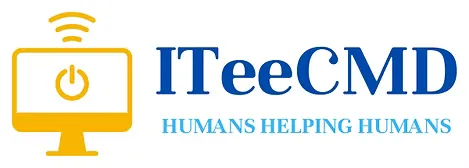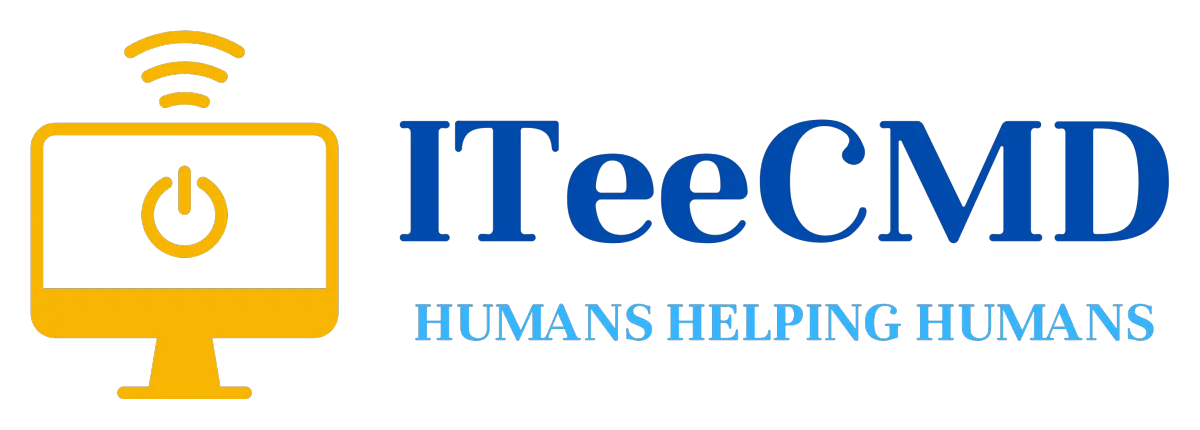Our Latest Blog Posts!

Ryan Foster's Proven Methods
STOP Struggling with Tech in Your School and Discover Ryan Foster's Proven Methods
Ryan Foster is an IT consultant based in New Jersey who focuses on helping schools and nonprofits with their technology needs. After starting his career in education, he saw the gaps many organizations face when trying to adopt and manage technology. His hands-on experience in both the classroom and IT has shaped his approach to solving problems for educators and nonprofit leaders.
Over the years, Ryan has built a business supporting local schools, private practices, and small nonprofits. He understands the unique challenges that come with working in these sectors, like managing tight budgets, using specific payment methods, and navigating state rules. By finding creative solutions and building strong relationships, he continues to learn and grow while helping others improve their technology systems.
Key Takeaways
Ryan Foster uses his education background to support schools and nonprofits with IT solutions
He brings unique strategies to overcome challenges in educational and nonprofit environments
Ongoing learning and adaptability are key to his growth and success in the field
Ryan Foster’s Path and Growth
Moving From Teaching to Technology Work
Ryan Foster started his professional journey as a high school history teacher. After earning his first bachelor's degree, he spent a few years in the classroom. Over time, he shifted gears and moved toward information technology, finding new opportunities to use his skills outside of teaching.
Since 2017, Ryan has worked as an independent IT consultant based in New Jersey. He mainly helps small businesses, schools, and nonprofits by solving technology challenges and guiding digital projects. His current work includes assisting a charter school in Newark, where two of his children are students.
How Family and Education Shaped His Career
Education is a big part of Ryan’s life because many of his family members are educators. His wife is an administrator, and several relatives, like his mother-in-law and sister-in-law, also work in schools. This strong family connection to education has influenced his choice to focus on serving schools and nonprofits through his IT business.
He holds two bachelor’s degrees and has used his academic and family background to understand the unique needs of educational organizations.
First Jobs and Work With Charter Schools
Before starting his own business, Ryan worked for about five years at a charter school system. There, he managed student and staff devices, set up network infrastructure, and handled big technology purchases. He watched for areas where technology services could improve, especially for schools and nonprofits that didn’t have access to the same resources as big businesses.
Through these experiences, Ryan learned how to bridge the gap between strong technical skills and the real needs of educators. He continues to work closely with charter schools and smaller organizations, focusing on solutions that fit their environments.
Focused Expertise in IT for Schools and Nonprofits
Key IT Services and Solutions Offered
Ryan Foster specializes in a range of IT services for schools and nonprofit organizations. These include managed IT support, product sourcing, project management, and general consulting.
Some of the main technologies he handles are:
Student Chromebooks
Staff computers (Windows and Mac)
Network infrastructure
Technology planning and purchasing
He often partners with suppliers to manage large orders with limited upfront capital, making use of joint purchase orders to streamline payments and delivery.
Unique Difficulties in Educational and Nonprofit Environments
There are specific hurdles in these sectors. For example, schools in New Jersey are not allowed to carry debt, so all payments must be made by check, which is different from most private sectors that use cards or bank transfers. This requires adapting billing methods and being creative with cash flow due to slow processing times.
Additional challenges include:
Navigating strict budgets
Understanding unique funding sources like grants
Handling large, sometimes unpredictable, orders
Below is a simple table comparing payment methods:
Sector Common Payment Method Schools (New Jersey) Checks (required by law) Other clients Credit card, bank transfer
Value of Knowing School and Nonprofit Culture
A deep knowledge of the educational world helps Ryan better meet client needs. His background as a former teacher and connections with educators give him insight into:
The daily challenges faced by staff and students
Gaps in technology support not covered by traditional IT firms
The importance of clear communication and trust with school teams
This perspective allows for solutions that fit the unique culture and requirements of schools and nonprofits, rather than a one-size-fits-all approach. This understanding shapes every project and partnership.
Special Strategies for Running Schools and Nonprofits
How Payments and Rules Work
Schools and nonprofits in New Jersey must follow strict rules with money. They cannot use credit cards or owe money for their technology purchases. Instead, they pay for products and services using paper checks, as required by state law. This means vendors must be ready to handle check payments and plan cash flow carefully.
Method Allowed? Notes Credit Card No Against state rules Check Yes Required by law Other Loans No Not permitted for purchases
Checks can be quickly deposited using banking apps, which helps avoid delays in getting paid.
Smart Ways to Manage Money and Resources
Many small businesses serving schools or nonprofits do not have large amounts of extra cash. It takes creativity to meet funding needs. Building good relationships with banks and suppliers is important for managing cash flow.
Some key ways to handle finances and resources include:
Looking for grant opportunities and loans.
Keeping a strong partnership with the bank.
Being flexible with payment options and timelines.
Tracking budgets closely for better planning.
These steps help organizations stay on budget and maintain steady operations.
Working with Suppliers and Sharing Orders
For very large purchases, suppliers sometimes offer joint order arrangements. In these cases, the supplier can cash the client’s check directly using power of attorney, then forward any remaining balance to the business owner.
This method is useful when making purchases that require more money than a small business usually keeps available. It allows schools to get the technology they need without waiting for extra funds. Good communication and trust between the supplier and the consultant make this process smooth and easy to manage.
What Sets This Business Apart and Key Industry Hurdles
Supporting Independent Ventures and Small Companies
Ryan Foster’s consulting business stands out by focusing on small businesses, non-profits, and schools instead of only seeking large corporate contracts. Many IT firms target big, corporate clients, but Ryan believes smaller organizations and entrepreneurs are often overlooked and need specialized help. This approach helps them get hands-on support and advice that fits their budgets and unique needs.
Some ways Ryan supports these clients include:
Offering flexible services like break/fix, product sales, managed IT, and project management.
Helping clients navigate technology purchases even with tight funding.
Sharing creative solutions for funding, such as understanding grant opportunities or setting up joint purchase orders with suppliers.
Comparing Service Needs: Companies vs. Education Clients
The biggest differences between corporate clients and educational or non-profit clients show up in payment systems and processes. Schools in places like New Jersey must pay for services with checks due to state laws, while corporate clients use faster payment types, like credit cards or bank transfers. This can impact cash flow and requires different bookkeeping methods.
Key distinctions:
Corporate Clients Schools & Non-Profits Pays via bank transfer/credit Pays by check only (by law) Flexible payment schedules Stricter, no-debt regulations Fewer restrictions on vendors Formal vendor approval needed
Ryan adapts to these needs by accepting check payments from schools and using banking apps to speed up processing.
Managing Challenges With Subcontracted Work
When Ryan works as a subcontractor for other IT firms, there are extra challenges. For example, he must represent another business to the client and often does not have direct access to all records, credentials, or background knowledge needed.
Main challenges faced in subcontracting include:
Needing to present himself as part of another company, not his own.
Limited access to important client information and documentation.
Navigating unclear lines of communication when delivering service.
These factors make direct client work more straightforward, while subcontracting requires extra coordination and trust between parties.
Progress, Ongoing Training, and Looking Ahead
Staying Up to Date with New Skills
Ryan consistently works on improving technical skills to meet client needs. He learns from hands-on work with schools, nonprofits, and businesses. Using challenges as learning opportunities, he focuses on areas like network setup, technology purchases, and problem-solving. Regular training and following new trends help him adapt to changing technology.
Key efforts include:
Keeping informed about the latest tech in education
Learning from real-world projects and feedback
Attending workshops and expanding certifications
Meeting New Technology Demands in Schools
Technology in education is always changing. Ryan adapts by focusing on solutions that address specific needs in schools and nonprofits. Each new project brings a chance to solve different challenges, like managing device rollouts or building strong networks.
Focus areas:
Need Solution Device setup Proper rollout plans Security Updated protocols Connectivity Reliable networks
He also finds that understanding the culture and structure of each organization helps him provide better support.
Creating a Lasting IT Consulting Business
Ryan uses creative business strategies to keep his consulting practice strong. He finds new ways to manage funding, like using joint purchase orders with suppliers. Building good relationships with suppliers and banks is important for managing large projects.
Ways he builds stability:
Working with trusted suppliers
Using smart payment methods, like joint purchase orders
Staying aware of grant and funding opportunities
Building a solid reputation over years of reliable service
By learning from each experience and staying flexible, Ryan positions his business to grow and succeed even as the technology landscape changes.
Address
2618 San Miguel Drive
Newport Beach, CA, 92660
Tel: 949-257-6998
Address
Newport Beach, CA, 92660
Tel: 949.257.6998
Follow Us
© 2025 all rights reserved. Created by Growth Generators. Privacy | SMS Disclosure.

